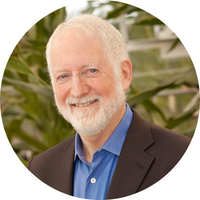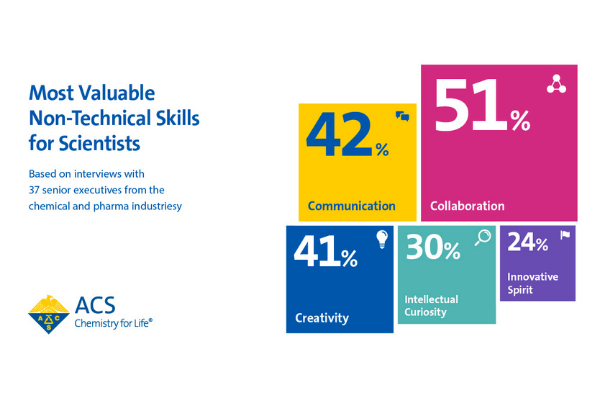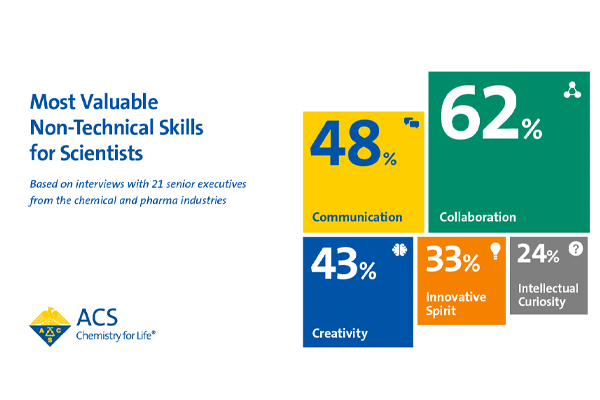
Key Takeaways:
- Neal weighs in on what he believes are the most consequential issues regarding sustainability
- What you do not know about the challenges U.S. farmers face
- A realistic view of what it takes to bring a new seed from research to market
What is the most consequential issue regarding sustainability and agribusiness? And what is Corteva doing to address it?
Climate change, water conservation and land productivity are all critical issues for agriculture and issues we’re focused on at Corteva. In fact, this past fall we announced a $500,000 challenge grant to incentivize and support farmers who have developed practices that can lead to climate positive agriculture.
Across our business we’re working on solutions that improve yields for farmers while safeguarding the environment. We are looking at ways to improve cropping systems, such as direct seeded rice in India, for example, which reduces water use and greenhouse gas impacts.
Another important area is reducing the amount of chemistry used in our food production system, and the environmental fate and off-target impacts of those crop protection chemicals. We’re investing in ways to reduce use rates, with today’s herbicides used at only 10 grams per acre compared to pounds for earlier generation herbicides. We’re investing in ways to target chemical application to only those parts of a field where the chemical is needed. Novel formulations are an important part of delivering these benefits.
What are the biggest challenges confronting farmers that the average person has little appreciation for?
Farmers face so much year-by-year variability. So much uncertainty and unpredictability. They are constantly looking for ways to improve their practices and enhance the success of their family businesses.
To that end, most people in the U.S. don’t realize just how important size is to a profitable farming operation. Many people feel that only small-scale farming is good and don’t truly grasp how the economics work. Generally speaking, there’s also a lack of awareness about how much the average farmer cares about the environment and conserving the natural resources that make farming possible. In reality, farmers are asking the same questions we ask ourselves at Corteva. How do we run a successful and profitable business without compromising the natural resources that make our livelihoods possible?
You have written that in order to offer new value to farmers, it is necessary for Corteva to ‘embrace uncertainty and be willing to disrupt ourselves.’ This is much easier said than done. How would you assess Corteva’s progress in this area?
You’re right; this is much easier said than done. It is rare for a company to be ambidextrous enough to fuel the growth of its current business while reinventing its path to future success. The latter often loses out to the gravitational pull of the former. We’re trying to be one of those rare companies that can do both.
With this goal in mind, we have created what we call our Disruptive Business Innovation portfolio, a handful of initiatives that we believe hold the potential to transform what we do and how we do it or both.
Broadly speaking, we’re doing a much better job disrupting ourselves now than prior to our merger. That said, we know there’s so much more we can do to partner, motivate and finance self-disruption. This is a constant journey.
What non-technical skills do you most highly value among your scientists at Corteva?
For starters, emotional intelligence. It’s critical. The work we’re entrusted with is centered on collaboration and co-creation, and that requires a keen understanding of how to work with people and inspire, engage and build networks of trust.
Closely related to that, I think, is having a strong sense of intellectual curiosity—that innate drive to look for better ways to do things for farmers, consumers and society at large.
That tends to go hand-in-hand with another trait I value in people, which is passion. Passion for purpose, for transforming agriculture and for delighting our customers.
Today we’ve also got to be digitally savvy, and as comfortable with using digital computational tools as we are with algebra. Digital literacy is foundational.
Having worked at start-ups as well as Fortune 100 companies, what would you tell an early career chemist about the pros and cons of each?
Whenever young scientists approach me for advice, I encourage them to seek out both experiences, even if they prefer one over the other. I advise them to think about how they want to develop their careers and what they can get out of each type of company. With large companies, you’ll get a depth of experience that will prove invaluable as your career develops. Conversely, with start-ups and small business experience, you’ll have a proximity to the business and breadth of experience that will be beneficial as you develop.
I also tell them that the experiences they’ll gain in an entrepreneurial setting will be beneficial to large companies that are trying to instill that kind of culture on a larger scale. At the same time, small businesses benefit from the rigor, discipline and depth of knowledge that one typically acquires while working for a large company.
At times I have even counseled young scientists to leave our company and go to work for a start-up to broaden their innovation experience. Having a broad understanding of innovation – from new technologies to new business models – is critical to leadership in a growth company. As a mentor, it’s gratifying to see young scientists who take this path and gain this outside experience come back to the business and contribute in new and meaningful ways.
What are some of the ways you try to develop and retain young talent at Corteva?
I think it’s important to connect young talent to our purpose and to the customers and consumers we serve. More and more young people today want to make a difference in the world and be part of something bigger than themselves. It’s important for us to nurture a way of working that combines a sense of purpose with a mastery of our craft to enable our people to work autonomously.
Mentorship is also very important to growth and development. I’m a big believer in connecting young scientists to more experienced scientists, and in trying to provide as many opportunities and experiences for our people as possible. One of the ways we do that at Corteva is through a robust Fellows and Distinguished Fellows program which is heavily focused on mentorship. In my experience, everyone benefits from a diversity of thinking, cultures and opportunities. That’s one of the great advantages in coming to work for an inclusive multinational company such as Corteva.
What technology trends are you following most closely with an eye toward how they may impact the work of your scientists?
I keep a close eye on data analytics and deep learning that has the potential to change not just the efficiency of what we do, but also help us improve what we envision and achieve. Predictive science touches every aspect of our business and will play a huge role in the future of agriculture.
I’m also very interested in novel synthetic strategies like DNA library-enabled tools that can open the exploration of the chemical space. And of course, there’s so much potential for natural product discovery enabled by genomics and metagenomics, and related approaches of strain improvement.
What can the chemical industry do to make the workplace more welcoming and rewarding for women?
As an industry, we know we need to be more inclusive for women and people of color; full stop. It’s not just a nice to do or the right thing to do, it’s how we’ll deliver the best outcomes for farmers and consumers. To me, it starts with putting more women and people of color in leadership positions. That’s the starting point for creating the more welcoming and rewarding workplace you describe, and it helps inspire others to follow a similar path.
It’s also important that we continue to reach out to youth groups to inspire more young women and people of color to seek education and careers in chemistry. For the past couple of years, I’ve spoken to young people from all over the world whom we support through the World Food Prize. The majority of these young students are female, which is an encouraging trend. Chemistry, by and large, is very diverse. The ag industry in the U.S., however, is not. But again, we can help lead that change.
How did your parents influence your leadership style?
Both parents were important in different ways. My father was a chemist in the flavors and fragrance industry. Our house was filled with books about science and dad would bring home chemistry sets and other tools of the trade that I found fascinating. From him, l learned to be curious about the world and how things worked and why they worked that way. My father was also a very positive individual who always saw the best in others, and I seek to do the same. From him I also learned to lead by vision and purpose, and to empower.
I have a brother who is learning disabled, and my parents worked in support groups. They taught me so much about patience, encouragement and inclusion. They also taught me the value of building consensus while being decisive, a tricky combination. I credit my mother, who brought joy and warmth with her, for teaching me to have fun and share my true self with others while working!
In a piece published on June 12, 2019, the Midwest Center for Investigative Reporting stated that it ‘can cost millions of dollars and take up to 20 years to bring a new seed from research to market.’ Do you agree with that statement? And if you do, what drives such a long timeline?
Not exactly. When you look at breeding vs biotech vs genome editing or targeted breeding, each has a different range of costs and time-to-market. Return on invested capital matters deeply to me and Corteva; we are very focused on ensuring that our investments address the needs of farmers and offer our company the highest-potential return possible.
With today’s conventional breeding – which we refer to as digital breeding – it usually takes 7-9 years to bring a major new crop variety to market, less for targeted breeding through genome editing. With biotech, it can take 15 years or more for a similar product. Regulatory hurdles and the lack of regulatory harmony are the most significant drivers of that extended timing and high cost.
Good news for Neal Gutterson. We’re going to set you up with your own farm, so you can buy as much Corteva products as you want. In what state (or country) would you like us to purchase land, and what will you grow?
Great question. My wife owned an almond orchard in California, and I spent many years living in that agriculture-rich state, so the prospect of farming there would be very appealing. Corteva is the largest provider of crop protection products and solutions on a wide range of specialty crops, so, I would probably grow tomatoes or leafy green vegetables. I could rest easy knowing that they would be protected by the insecticides we market today, some of which are natural products.
I’d also love to be part of the changing face of agriculture on my farm, testing new digital software tools and new farming practices, in partnership with Corteva. The American Heartland or the South, where we are developing new double cropping systems, would be ideal locations for that.

Neal Gutterson, Ph.D., Senior Vice President and Chief Technology Officer for Corteva AgriscienceTM, is responsible for leading the organization in finding bold, innovative solutions that enrich the lives of those who produce and those who consume.
In his role, Neal and his leadership team oversee a single, unified R&D organization focused on seeds and traits, crop protection, and predictive agriculture functions to design, discover and develop innovations that create value for farmers and deliver consumer benefits in planet-friendly ways. He and his team have designed an organization that innovates to deliver today’s products as well as enable realization of a vision of the future of farming.
Through a series of progressively more senior research and development roles, Neal built his career at biotechnology start-up companies, including Advanced Genetic Sciences and DNA Plant Technology Corporation. Prior to joining DuPont Pioneer in 2014, he was president, chief executive officer and board member of Mendel Biotechnology. He also served on the CIMMYT Board of Trustees as program committee chair.
Neal holds a Bachelor of Science in chemistry from Yale University and a doctorate in biochemistry from the University of California, Berkeley, and is named inventor on more than 30 patents and pending patent applications.
This article has been edited for length and clarity. The opinions expressed in this article are the author's own and do not necessarily reflect the view of their employer or the American Chemical Society.
Copyright 2020 American Chemical Society (All Rights Reserved)







